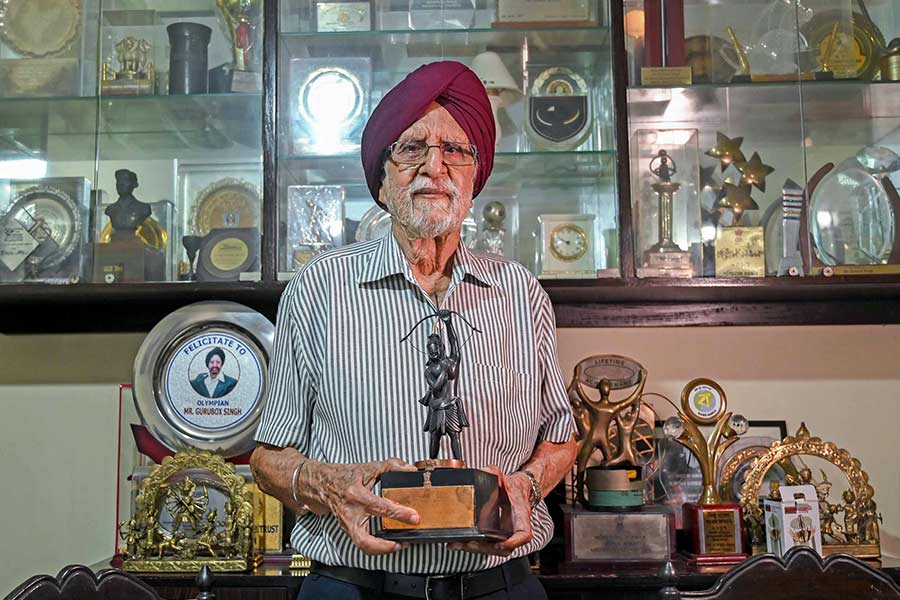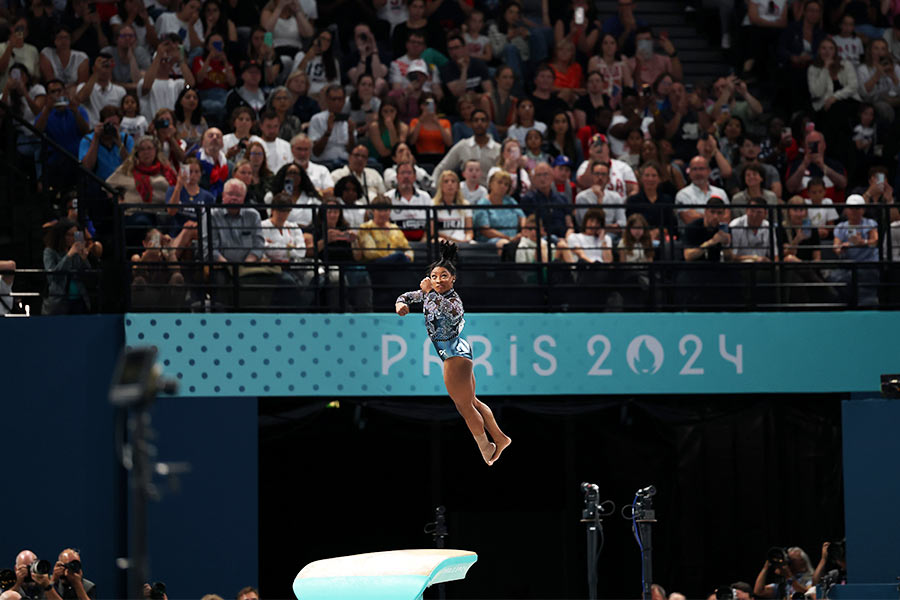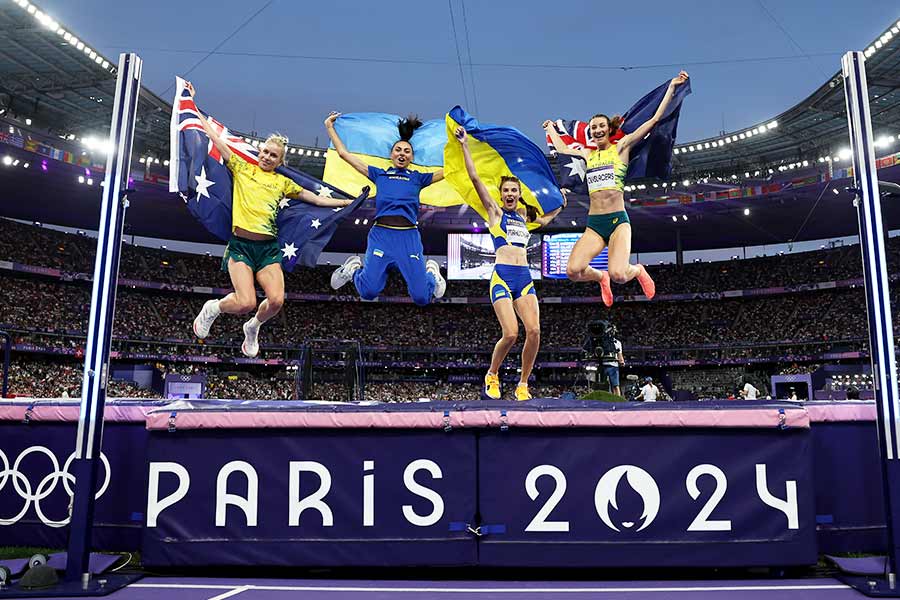The Pakistanis called him ‘professor’ during the 1964 Olympic Games in Tokyo because he always wore spectacles. An elegant and technical player on the ball who started off as a full-back but played wherever required for his country, Gurbux Singh was a key member of the Indian hockey team that won gold in 1964, before clinching a bronze four years later in Mexico. Sandwiched between these was another gold medal, won at the 1966 Asian Games. Across these four years, Singh didn’t miss a single game for India.
Apart from his stellar achievements for the national team, which he also coached at the 1976 Olympic Games, Singh, 88, played hockey for Bengal for 16 years, believed to be the longest tenure for any player for the state.
With the Indian men’s hockey team winning hearts in Paris, My Kolkata caught up with Singh at his Ballygunge residence to talk about his remarkable career and what he thinks India can do to become a greater sporting power. Edited excerpts from the conversation follow.
My Kolkata: Let’s start with your initial days in hockey. How did it all start?
Gurbux Singh: My father was in the Army and he used to play hockey and football. He played against Dhyan Chand’s team as well. It was through him that I got into hockey. We’re originally from Rawalpindi, which is where I started playing hockey before continuing it in Lucknow, where my father was posted (after Partition).
In 1955, I represented Agra University and also played for the then Madhya Bharat team, where the coach was Roop Singh (Dhyan Chand’s younger brother). After that I came to Kolkata. I was actually supposed to join the Army, but I had a perforation in my left ear. I refused to go to the medical board for testing. My father asked me to go to my sister in Kolkata, and so I arrived here in 1956. I have lived in Kolkata ever since, and I’m proud to be here. Whatever I’ve got in my hockey career has been from Kolkata.
‘We decided that if Pakistan played rough, we’d give it back’
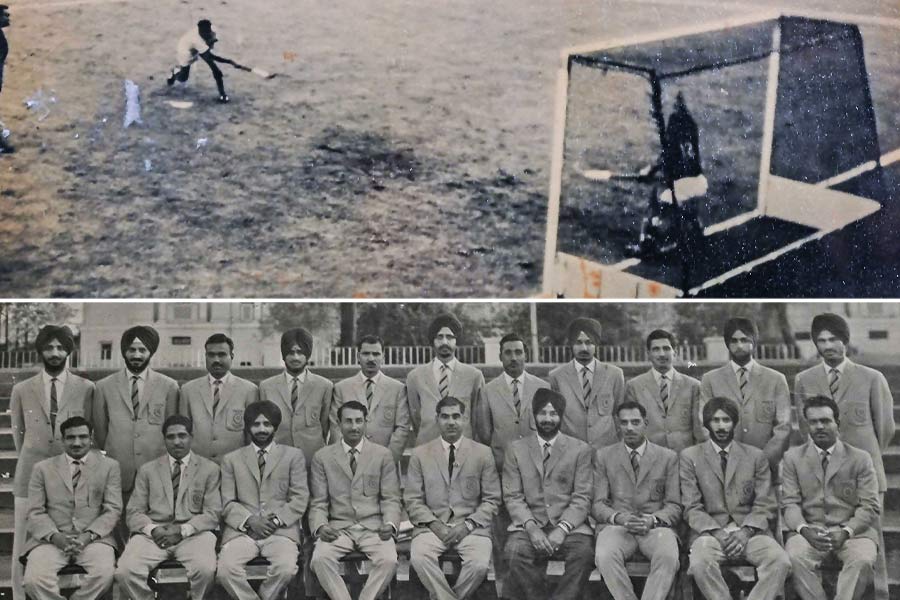
The shot that won India gold at the 1964 Olympic Games in Tokyo; the Indian men’s hockey team for the 1964 Games Amit Datta
You have often mentioned that the peak of your career was winning gold at Tokyo 1964. Take us through that experience.
Tokyo was the ultimate. In Rome in 1960, India lost to Pakistan (ending India’s run of six consecutive gold medals in men’s hockey at the Olympics) and there was a strong desire from every player to regain the gold. Coming into the 1964 Games, I was supposed to be a full-back, but senior players like captain Charanjit Singh, Udham Singh and Prithipal Singh decided that I would play left-half. We drew against Spain and Germany after beating Belgium. Those two draws put us in a difficult position. We tweaked a few things in our formation and got back to winning ways. We beat Australia 3-1 in the semi-final and were supposed to face Pakistan in the final. We were a bit worried because Pakistan were playing a rough game, as they had done in the 1962 Asian Games (when India lost in the final).
We decided that if Pakistan played rough, we’d give it back. But we won’t start by playing rough ourselves. Harbinder Singh got an early suspension. But we began to play better once we were down to 10. In the second half, we got two good chances. We got a penalty corner where Prithipal hit the ball and it struck the back of Munir Dar’s leg. We got a penalty stroke and Mohinder Lal scored the goal. After that, both teams played equally well. In the last three to five minutes, Pakistan got two or three penalty corners, which Shankar Lakshman saved. I still remember that there was a clock right in front of where I was playing in the second half. And the clock wasn’t moving! Two minutes felt like two hours. But we eventually got over the line.
Initially, I didn’t feel like we had won. It felt like just another match. But it began to sink in once the gold medals were put around our necks. When the national anthem was played and the Indian flag went up, tears began to flow. We realised that we had done something for our country. All our efforts had borne fruit.
The team you were a part of in Tokyo is often referred to as the second golden generation in Indian hockey. What made the team so special?
After Pakistan ended India’s dominance in the Olympics in 1960, we were desperate to bounce back. We followed up our gold medal in Tokyo 1964 with another gold in the 1966 Asian Games, beating Pakistan on both occasions. We were special because we won everything. Until the catastrophe of Mexico 1968.
‘We were crying and we just wanted to go home’
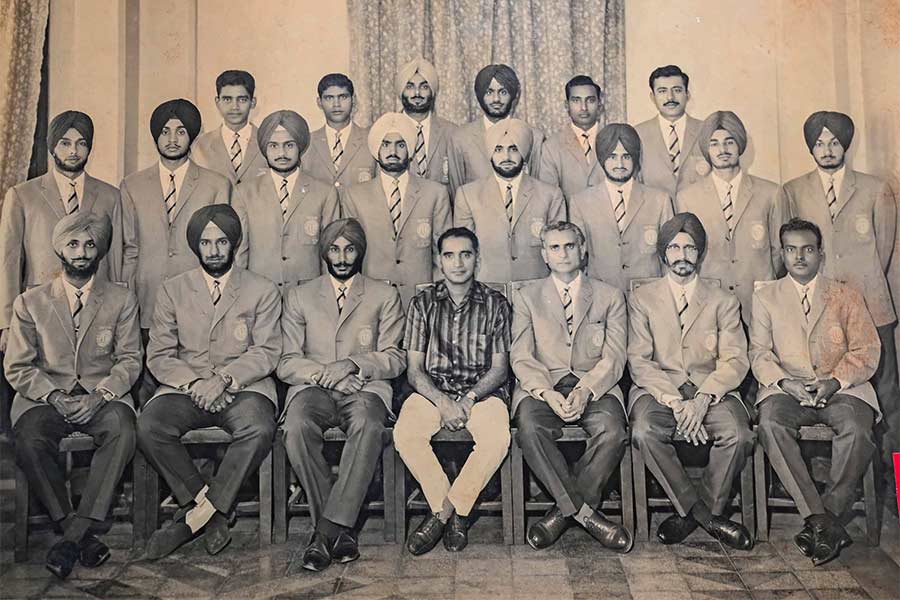
The Indian men’s hockey team for the 1968 Olympic Games in Mexico Amit Datta
As co-captain of the team in 1968, what was the Mexico Games like? Why do you refer to Mexico as a catastrophe?
It was a catastrophe for Indian hockey because we won bronze. When we came back to India, we didn’t even wear our medals in public. We kept them in our pockets. Personally, I cried when we got the Olympic gold and I also cried when we got the bronze. One was out of joy, the other was out of sadness. I think the main issue was that the team was made here and then sent to Kenya. In Kenya, we didn’t stay in hotels. The system was that players would be put up with Indian families, in pairs. We had no control, no physical training. The 15 days before the Olympics were the worst. On top of that, one of our crucial players, Inder Singh, got jaundiced and couldn’t come to Mexico. Another mistake, in hindsight, was leaving Shankar Lakshman behind.
When we reached Mexico, we lost our first group game to New Zealand. But the team was playing well and we were confident of playing either Australia or Pakistan in the final. We met Australia in the semis and things didn’t go our way. Our keeper on the day got beaten four times from penalty corners. I saved two on the line and the other two went in. There was one that was going out and both me and Prithipal shouted to let it go, but the keeper swung his stick and the ball went in off the post. We were all very disappointed because that happened in extra time and we lost. We were supposed to go on a tour to Port of Spain after that. But we went and told the manager and the other authorities that we don’t want to go anywhere. We were crying and we just wanted to go home. When we did get back, there was nobody to greet us at the airport.
In all your on-field pictures, you are wearing spectacles. Nowadays athletes either wear goggles or lenses. What was it like playing with spectacles?
During my playing days, I used to wear a black band that I would tie around my beard and the specs would go in there. They never fell off during an international game. But once a player in Bhopal hit me during a match and it broke my glasses. I always carried an extra pair with me anyway. When I went on my debut tour in New Zealand, I discovered plastic lenses. So I started using those for hockey to prevent any injuries in case the glass lenses ever broke.
‘What Manu Bhaker has achieved at this Olympics is an absolute bonus for India’
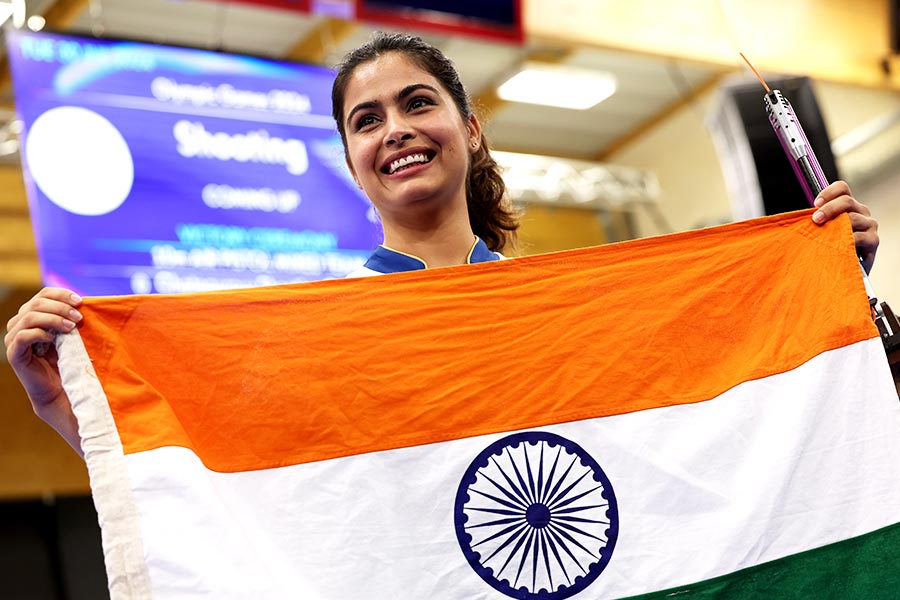
Manu Bhaker made India proud with two bronze medals in shooting at Paris 2024 Getty Images
Coming to the current Olympics, what is your take on India’s performances so far?
I was expecting better performances from Chirag Shetty and Satwiksairaj Rankireddy in badminton. Even P.V. Sindhu, but one bad day can end it all. I’m definitely expecting another medal from Neeraj Chopra. Another gold would be amazing! What Manu Bhakar has achieved at this Olympics is an absolute bonus for India… The difference between a medal and no medal is so small. Take Dipa Karmakar in Rio, for example. As for hockey, I feel the Indian team should always try to make it to the semi-finals at least. After that, it’s all about what kind of a day you have on the big occasion.
‘Hockey used to be more technical, but now it’s become more like football’
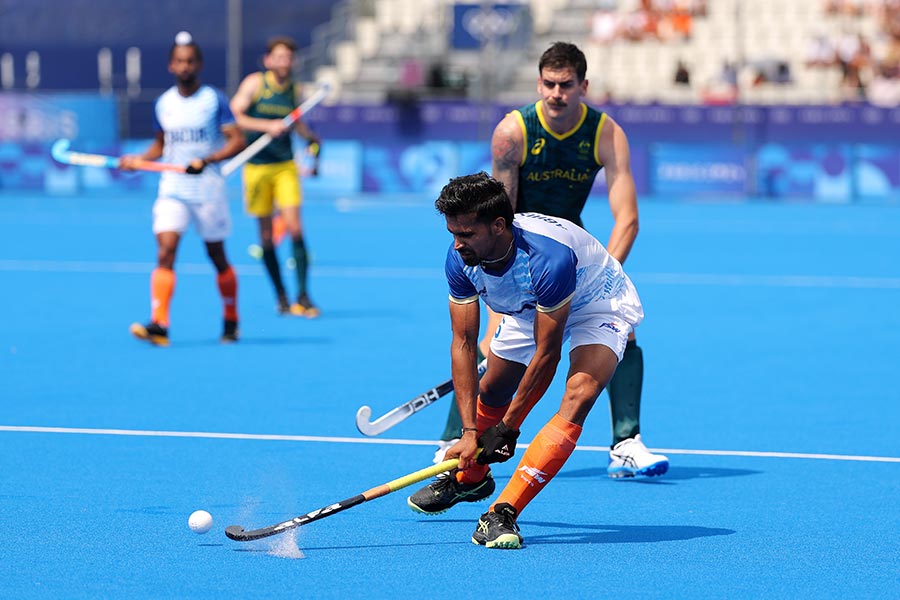
Action from the India-Australia hockey match at the ongoing Olympics Getty Images
Having been associated with hockey for so long, what do you make of its evolution over the years?
The introduction of turf (replacing natural grass) changed everything. Dhyan Chand’s hockey is no more. Earlier, it was 30 per cent tactics and 70 per cent skills. Now, it’s the reverse. Hockey used to be more technical, but now it’s become more like football in terms of tactics. The rules have changed. The obstruction rule is not there. You can hit the ball like a tennis player’s smash now. You can hit the ball and save it with your stick high in the air. I think there should be two hockeys. One should be like ice hockey and the other should be grass hockey, which used to be the hockey of our times.
When it comes to Indian hockey, for 40 years, we didn’t bother about the game because the turf wasn’t there. When I was the coach in 1976, I had asked for a quarter of a turf for practice, but we didn’t get it. I took the team to France for 15 days before the 1976 Games to practise on turf but it wasn’t enough. In fact, I think hockey in Montreal was the most topsy-turvy tournament because none of the big teams won. It was New Zealand who won, a team that had never reached the Olympic finals before.
‘I have done everything that is possible to do in hockey’
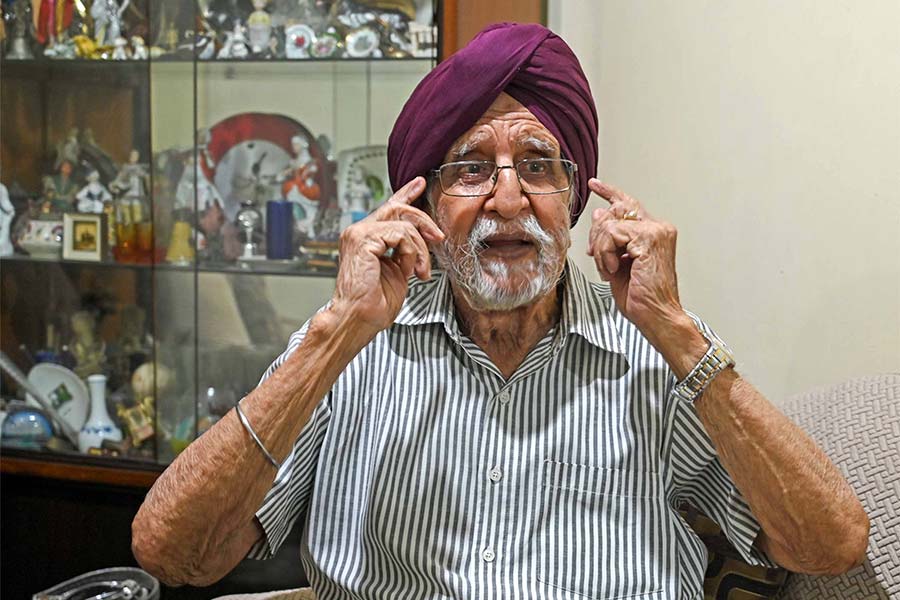
Apart from captaining and coaching India at the Olympics, Gurbux Singh also umpired at the 1992 Asian Games Amit Datta
You have played various roles in Indian hockey over time, from player to captain to coach and even secretary of hockey federations. What was the part you enjoyed the most?
I played hockey for the love of hockey. I have done everything that is possible to do in hockey. I was an international umpire at the 1992 Asian Games. I umpired two National Games finals. I have coached Bengal, my own team Mohun Bagan. I have coached India at the Olympics and I also coached France for a year. Then I have been secretary as well as being national selector for a long time. I was the secretary of Hockey Bengal for 18 years. No other player in India has done all this. And it was all out of my love for the game.
Lastly, any thoughts or suggestions on what we can do better to be more competitive, not just in hockey, but in other sports as well.
The first thing is job security. We’re losing most of our greatest talents after they finish schooling because there’s little to no job security in sports. Apart from cricket, which other sport can offer a stable future? In hockey, for instance, you don’t get anything. I’m very happy that cricket does so well in our country. But we need to build our players in other sports from the ground up. In the smaller age groups for hockey, there are no turfs, so the youngsters begin by playing on grass. When they switch to turf, they have to unlearn everything. It’s like playing a different sport altogether. The bottom line is that we have to develop grassroots sports in such a way that players are ready to perform when they arrive at the national or international level.
